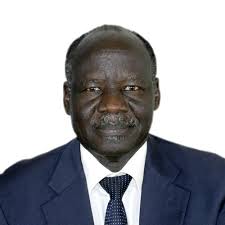Press Release
Date: 4 August 2018
Equatorian Leaders in the Diaspora express serious concerns about the IGAD-led peace talks on South Sudan being held in Khartoum
The Equatorian community leaders in the Diaspora representing over 30 (thirty) South Sudanese tribes/ethnic groups, are seriously concerned about the direction of IGAD-led peace talks currently underway in Khartoum, Sudan. The peace talks is characterised by the following: (1) it is conducted under an environment of threats, and bribery; (2) it is NOT INCLUSIVE in nature; and (3) the proposed agreement on governance does not meet the aspiration of the people of South Sudan.
1. The host mediator (Sudan Government) has been accused of having used threats of deporting any party who refused to sign the permanent ceasefire agreement (Khartoum Agreement) from Khartoum to Juba; handing them to their enemy – the Government of South Sudan. The same threats remains for those who refuse to sign the proposed agreement on governance, which is expected to be signed on the 5th August 2018. The Equatorian leaders in the Diaspora condemn in the strongest possible terms the approach used by the mediator to force the parties who have genuine concerns not to sign the agreement because they believe it is fundamentally flawed and is unlikely to bring sustainable peace to the country.
2. The proposed Governance Agreement is neither inclusive nor fair. It is the design of the mediators that the proposed agreement benefits President Kiir and Dr Machar thus realising the reunification of SPLM/SPLA. The deal excluded all other opposition groups. Various versions of the draft agreements produced during the negotiation process maintained the core Entebbe proposal, while the proposals of the opposition parties were ignored or very limited aspects of it were incorporated into the agreement, which did not make any material difference.
3. At its core, the agreement put forward by the mediators maintained the current failed system of government: it rewards corruption; ignores accountability to war crimes and crimes against humanity; and it entrances land occupation / grabbing by maintaining the disproportional share of governance at all levels. The popular demand for federalism to commence from the start of the transitional period was undermined, while there are moves to legitimise the illegitimate 32 states through a dodgy referendum to be supervised by President Kiir who decreed them in the first place.
2
4. In conclusion, we are for a genuine, just and a sustainable peace agreement. We therefore call for:
a. Federalism to be instituted from the start of the transitional period. This shall be later enshrined in the permanent constitution.
b. Three regions / provinces as the basis of equitable planning (including resource allocation) and governance with substructures within them that safeguard the interest of all nationalities therein.
c. No threats must be made to any party in the peace negotiation so that any party who is not satisfied with any agreement is free to walk away and not be forced to sign it. The presence of international observers (UN, TROIKA, AU, and IGAD) is needed at the peace talks to ensure transparency and the right environment for negotiation.
d. An inclusive peace process that is mediated by a neutral host. The current mediators are all biased in favour of the Government and they have sought to accommodate Dr Riak with the post of First Vice President. The mediators ignored addressing the root causes of the conflict. A bad agreement is not only short-lived, but it costs lives too. Therefore, a bad agreement is not worth signing.
Equatorian Leaders in the Diaspora:
Mr. Federico Vuni,
Chair, Equatoria Community Organisation in the UK
Mr. Juma Piri Piri
President, Federation of Equatoria Community Association in Australia Inc
Mr. Joseph Modi,
President, Equatorian South Sudanese Community Association, Canada (ESSCA-Canada)
For correspondence: Mr. Federico Awi Vuni; Email: federicovuni58@gmail.com
Editor’s Note: The views expressed in the “Press Release Page” are solely the opinions of the writers. The veracity of any claims made are the responsibility of the author’s and are not necessarily endorsed by The Malakal Post. The Malakal Post, reserves the right to edit press statement before publication. If you would like to submit an opinion article or analysis, please email your article at: info@malakalpost.com















